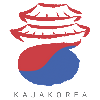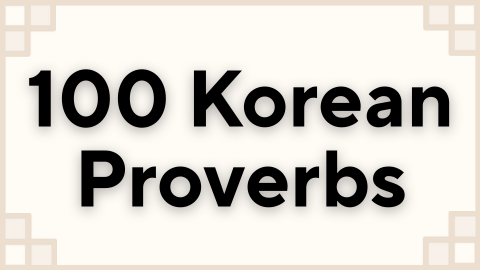Korean Lessons ᚛ Level 1 - My First Steps in Korean (Lessons 1 to 30) ᚛ Lesson 24 - Personal pronouns in Korean
Personal pronouns in Korean
In Korean, the use of personal pronouns (I, you, he/she… etc) is very different from English. Moreover, they are few of them and should even be avoided in certain situations.
Personal pronouns in casual style
Be careful, personal pronouns vary according to the level of politeness used for the person you’re addressing.
|
Pronoun |
Casual style |
|
I |
나 |
|
You |
너 |
|
He |
그 |
|
She |
그녀 |
|
We |
우리 |
|
You (plural) |
너희들 |
|
They |
그들 |
|
They (only women) |
그녀들 |
Personal pronouns in polite and formal styles
When you need to show respect to someone, whether polite or formal, be sure to use the following personal pronouns.
|
Pronoun |
Polite and formal styles |
|
I |
저 |
|
You |
그쪽 |
|
He |
그분 |
|
She |
그분 |
|
We |
저희 |
|
You (plural) |
여러분 |
|
They |
그분들 |
To say “you” politely, you may have heard of the word 당신. In reality, this word is rarely used on a daily basis. It can be found on rare occasions on signs addressed to passers-by. Moreover, when used in a couple, it means "darling", but remains much less used than 자기 (generally used within a young couple) and 여보 (generally used within a married couple). Also, you may have heard of 그대 before. It means "you" but is usually used in poetry and songs.
여러분 literally means "everyone" and is used to address a number of people.
Note: the pronouns 그 / 그녀 / 그분 and 그들 / 그녀들 / 그분들, although very rarely used, are used according to the respect you give to the person you are talking about, and not the person you’re addressing. So, you can very well use 그 when talking about someone for whom you don’t have to express special respect (a friend for example) to your boss with whom you use the formal style. Similarly, you will use 그분 when talking about a person you respect, even if the person you’re talking to is your best friend.
Titles in Korean
I mentioned in the introduction to this lesson that personal pronouns are used very little in Korean. Indeed, apart from 나 / 저 (= I), 우리 / 저희 (= us) and 너 (= you) to an extent, the others are rarely used.
The reason is simple: in Korean, it is rude to talk about someone or address someone without using their name or title.
A title is a word that defines a person. There are many titles in Korean, this can be:
- the profession of the person like 선생님 (= teacher), 기사님 (= driver), 변호사님 (= lawyer) …
- the professional status of the person within a company such as 사장님 (= director), 대표님 (= representative) …
- the social status of the person such as 아저씨 (= sir (of a certain age)), 아줌마 (= madam (of a certain age)), 어머님 (= someone's mother), 아버님 (= the father of someone), …
- the role of the person in relation to yourself such as 오빠 (= big brother (for a woman)), 형 (= big brother (for a man)), 선배 (= senior student, senior colleague), …
Note that the terms 오빠 (= older brother (for a woman)), 언니 (= older sister (for a woman)), 형 (= older brother (for a man)), 누나 (= older sister (for a man)) can be used even when unrelated. However, the two people must be quite close and of a small age difference.
All titles are to be used even to say "you" to someone, which gives the impression of speaking in the third person.
If you are a girl and you want to tell 윤기, your older close friend, that he is nice, the phrase “You are really nice.”, it is not natural at all to say in the polite style: 그쪽은 정말 친절해요.
Because he is older than you, you must show some form of respect and it is necessary to use his title, 오빠 or 윤기 오빠, when addressing him.
윤기 오빠는 정말 친절해요.
→ You are really nice. (addressed to Yoongi)
→ Yoongi is nice. (speaking of him)
The polite suffix 씨
Learn more
The polite suffix 님
Learn more
Use of Personal Pronouns in Korean
Apart from 나 / 저 (= I) and 우리 / 저희 (= we), personal pronouns are rarely used in Korean. However, it is possible to use them in the rare case that neither the name nor the title of the person is known.
For example, your colleague introduces you to his friend. You ask him what his name is:
이름이 뭐예요?
→ What is your name?
He then replies:
저는 박재현이에요.
→ I am Park Jaehyeon.
If he wishes to continue by asking “And you? “, he can add:
그쪽은요?
→ And you? (lit: On your side?)
In such situations, Koreans can also simply repeat the previously asked question, as follows:
저는 박재현이에요. 이름이 뭐예요?
→ I am Park Jaehyeon. What is your name?
Use of 너
너 is the personal pronoun used to say "you" in the casual style. As explained in this lesson, it is rare to talk about someone without using their title or name.
너 is the lowest possible term in terms of respect. It is commonly used between close friends or schoolmates, but never from a younger person to an older person.
너 demonstrates absolutely no form of respect, so it should be used carefully.
너는 괜찮아? (towards a close friend who is younger or of the same age)
→ Are you okay?
Omission of personal pronouns
Personal pronouns (as the topic or subject of the sentence) are not used when we already know who is concerned by the subject, in order to simplify the sentence.
If my close friend sends me a message and asks me what I'm doing, he doesn't need to specify 너는 since I know the message is addressed to me.
(너는) 뭐 하고 있어?
→ What are you doing?
In response to this question, if I want to answer that I am watching a drama, again, it is not necessary to specify the personal pronoun. My friend knows that the answer to his question concerns me.
(나는) 드라마 보고 있어.
→ I am watching a drama.
Note: The -고 있다 structure indicates that an action is taking place, it will be seen in a later chapter.
Variations of personal pronouns with particles
When we associate personal pronouns with certain particles, it is very common to contract them in order to make the sentence more fluid.
With the topic particle 는:
- 나는 can become 난.
- 저는 can become 전.
- 너는 can become 넌.
- 우리는 can become 우린.
With the object particle 를 :
- 나를 can become 날.
- 저를 can become 절.
- 너를 can become 널.
- 우리를 can become 우릴.
With the possession particle 의 :
- 나의 can become 내.
- 저의 can become 제.
- 너의 can become 네. Be careful, 네 is generally pronounced [니] to be differentiated from 내 which would have the same pronunciation.
With the subject particle 가, there is no contraction but the pronoun changes. This change is mandatory:
- We don't say 나가 but 내가.
- We don't say 저가 but 제가.
- We don't say 너가 but 네가. Be careful, 네가 is generally pronounced [니가] to be differentiated from 내가 which would have the same pronunciation.
The particularity of 우리 and 저희
Learn more
Exercises
Learn more
You already know some vocabulary and sentence structures… But when you listen to Koreans speak, do you ever feel like something is missing, the meaning behind the words, the cultural nuance that makes the language truly come alive?
That’s completely normal. In Korean, proverbs and idiomatic expressions are essential to understanding how Koreans think and communicate. Without them, you can speak, but your language will feel flat and overly literal.
With 100 Korean Proverbs - Illustrated and Explained, you’ll understand not only what Koreans say, but why they say it, and what each expression reveals about their mindset and culture.
Learn more

